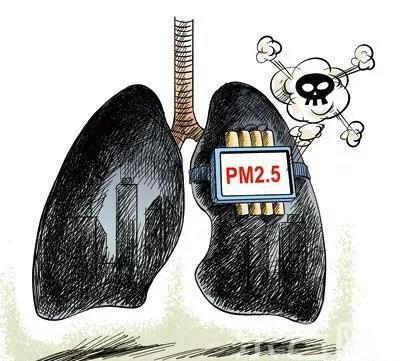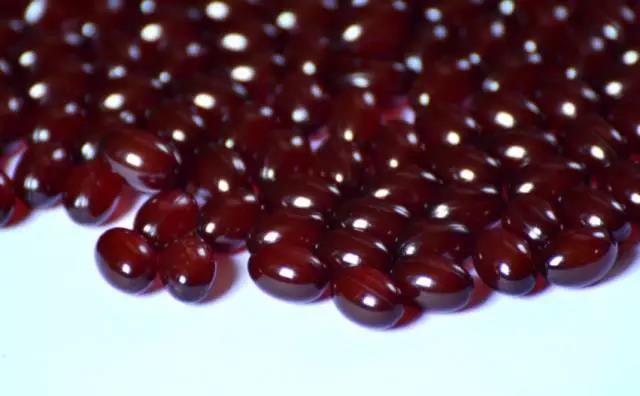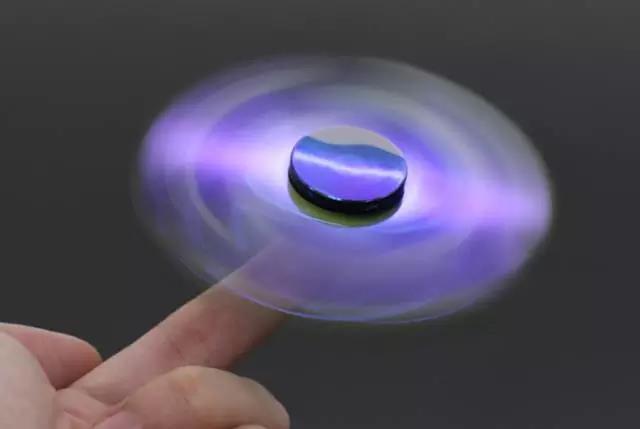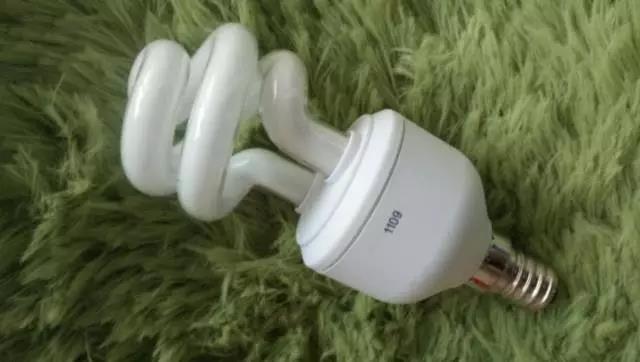PM2.5 blocks alveoli? Scissorhands leaked fingerprints? How many of the top ten rumors this year do you believe?
CCTV News:Nowadays, we are used to getting information on the Internet. However, 80 PM2.5 particles can block an alveolus; Compared with a "scissors hand", you can reveal fingerprints; Energy-saving lamps are actually super cancer sources … … These distorted information flooding the network makes it difficult to distinguish between true and false. The following is the media inventoryTop ten rumors in 2017,Let’s clarify the facts and restore the truth together!
01. Can PM2.5 block alveoli?
In January this year, a 150-second video of smog invading the human body was breathtaking. According to the video, people have 300 million alveoli, and 80 PM2.5 particles can block one alveoli. When the PM2.5 in our living environment reaches 1155 μ g/m3, 30 million alveoli can be blocked in one year, and one third of the lungs can be blocked in three years.

Truth: lack of evidence, exaggeration
Wan Jun, deputy director of the Department of Respiratory and Critical Care Medicine of China-Japan Friendship Hospital, said that the harm of smog particles to human body is not to mechanically "block" alveoli, but to adhere to the surfaces of alveoli and small airways, thus inducing inflammation, affecting gas exchange or secondary other lesions.
Accurate measurement of 80 PM2.5 particles blocking an alveolus,At present, there is no clear medical literature support at home and abroad.
The higher the concentration of PM2.5, the greater the harm to human body, but because it involves long-term and large-scale crowd experiments,There is no accurate data on the specific magnitude and the specific harm to the human body.
02, saliva can measure the child’s talent?
In February of this year, many people’s circle of friends was screened by such a message: a mouthful of saliva can measure the child’s talent, so that parents can develop the child’s talent and potential in a targeted manner.
Truth: Genetic testing can’t predict specialties.
Although it is feasible to detect genes with saliva, there is no scientific basis for detecting whether children are gifted with saliva.
The press officer of the World Health Organization who is in charge of media liaison on "Children’s and Adolescents’ Health" said that so far, it has not been heard that genetic testing can predict whether a child has talents such as music and painting.
Ma Yinan, Associate Research Fellow of Peking University Hospital Experimental Center:At present, gene technology and application direction are more focused onThe relationship between diseases and genes. The growth of children is the result of the joint action of genes and environment, and the role of environment is even greater.
03. "Scissorhands" took photos and leaked fingerprints?
At the end of February this year, the internet was widely circulated, and researchers warned that people like to be more cautious than the "scissorhands" when taking pictures, and fingerprint information may be leaked because of this gesture.
Truth: The technology is feasible, but it is difficult to realize.
A senior fingerprint expert from the Ministry of Public Security did an experiment. He took two photos of his colleague’s "Scissorhands" with his mobile phone and Canon camera respectively, and retouched the picture with his computer. The results show that it is impossible to obtain fingerprints from such photos, but it is possible if the fingerprint texture of the photos is particularly clear.
Network security expert Liu Yang:At present, it is difficult to take a clear picture of finger texture in the shooting distance (more than 1 meter) by using mobile phone photography technology. Network communication will compress the picture, reduce the clarity of the picture, cause the loss of photo details, and the possibility of revealing fingerprint information is low.
04. Will spring tea farmers be poisoned by excessive residues?
Before and after Qingming this year, an article about tea "Ying Jing" exploded in the circle of friends. The article points out that spring tea contains excessive pesticide residues, and it will be poisoned when drunk. Tea in summer and autumn is even more terrible, and even tea farmers don’t drink it themselves.

Truth: No pesticides are used during the production of spring tea.
Academician Chen Zongmao of Tea Research Institute of Chinese Academy of Agricultural Sciences:In many tea areas in China, the temperature is low during the production of spring tea, which is very little affected by pests and diseases, and basically no medicine is used. From mid-to-late June to September, pesticides will be used only when the temperature rises, rainfall is abundant, and tea pests and diseases are concentrated. It is a normal agricultural measure to use pesticides in tea gardens. As long as the tea leaves are picked according to the regulations, the processed tea products are safe.
05. Can brain tonic enhance memory?
In June this year, during the college entrance examination, the health care products that nourish and strengthen the brain will always sell well. Merchants claim that these health care products can improve attention and enhance memory.

Truth: It does not promote brain function.
Yi Zhu, Associate Professor, School of Food Science and Nutritional Engineering, China Agricultural University:The human brain is fully developed at the age of 3, and it is difficult to produce obvious effects of promoting development after using any products. Brain tonic products can provide nutrition at most, keep the brain functioning normally, and can’t promote brain development. If the intake of any nutrient exceeds the maximum intake tolerated by the human body, the possibility of its toxic and side effects will increase.
The Food and Drug Administration also issued a document saying that China has never approved any health food with brain-nourishing health care function, claiming that health food with brain-nourishing function misleads consumers.
06, enzyme can "beauty" and "detoxification"?
This summer, various enzymes appeared in Wechat business’s advertisements in the circle of friends, which claimed to have the effects of "beautifying face", "detoxifying body" and "losing weight".
Truth: Enzymes are enzymes, and it is difficult to maintain activity by oral administration.
Fan Zhihong, an associate professor at China Agricultural University, said that enzymes are enzymes. Enzymes are protein or RNA with catalytic function (most enzymes belong to protein). When you take enzymes orally, most enzymes will be digested by the human digestive system and lose their activity and can’t function. It is meaningless to say that enzymes can detoxify and clear the stool.
07. Can you lose weight by drinking diet coke?
In August this year, Coca-Cola Japan Company introduced a cola that claimed to be able to lose weight, and claimed that "indigestible maltodextrin" was added to this cola to inhibit fat absorption and stabilize blood lipids without generating more calories.

Truth: 5 grams of dietary fiber can’t pry fat.
Zuo Xiaoxia, director of the Nutrition Department of the 309th Hospital of the People’s Liberation Army, said that in theory, there is still innovation and progress in the composition of diet coke. The average daily intake of dietary fiber for normal adults is suggested to be 25 to 30 grams, and 5 grams of dietary fiber in a bottle of diet coke can only be used as a supplementary dose of daily dietary fiber. The key to losing weight still depends on whether people consume less calories every day.
08, eat more fat, low mortality?
In September this year, some media reported on "The Lancet PURE Research Impact Diet Guide", and put forward the paper published in The Lancet: Eat more fat, and the mortality rate is low; Take more carbohydrates and increase the risk of death.

Truth: Don’t be misled by the limitations of the research itself.
Hu Dayi, director of the Institute of Cardiovascular Diseases of Capital Medical University, said that these articles were one-sided and absolute, and did not analyze the obvious limitations of the research itself at all, which unrealistically exaggerated the research results.
The data sample of this paper comes from 135,000 respondents from 18 countries in the Middle East, South America, Africa and Southeast Asia (including China), and has been followed for 7.4 years. 81% of the respondents only have primary and secondary school education; 82% of the respondents are moderate and heavy manual workers, and few of them are involved in the richest areas in the world.
Xu Shiwei, member of the National Food and Nutrition Advisory Committee:To guide the dietary rules specifically, it is the key to find the most suitable one among the rich dietary structures.
09. Is fingertip gyro a decompression artifact?
In November this year, the fingertip gyro, which is popular all over the world, caught fire in the universe — — It was sent to the hands of the astronauts of the International Space Station and completed the first rotation in space. Merchants claim that it can help people release stress, relieve anxiety and help children with ADHD and autism concentrate.

Truth: Treating anxiety only treats the symptoms, not the root cause.
Professor Gao Bing, deputy dean of the School of Education of Minzu University of China, said that there is no evidence that fingertip gyroscopes can bring people concentration and stress relief.
Fingertip gyro is easy to attract people’s attention to the gyro itself, and it can’t make a person with poor attention become able to concentrate on everything. As for reducing the pressure, it also means that people can temporarily reduce the pressure by shifting their attention during the process of observing the rotation of the gyro, which does not mean that playing with the fingertip gyro can reduce the pressure generated at other times. Gao Bing believes that fingertip gyro can’t make people pay more attention. On the contrary, it will take up cognitive resources and have a bad influence on complex cognitive activities.
10. Energy-saving lamps are "super cancer sources"?
In December of this year, an article entitled "Emergency Exposure of Scientists! The article "Things that Chinese people use every day actually contain horrible carcinogens" has been widely forwarded. The article points out that ultraviolet radiation of energy-saving lamps can lead to skin cancer, and mercury in energy-saving lamps can cause death, which will release a variety of carcinogens after being electrified.

Truth: Qualified products will not endanger health.
Zhou Taiming, a consultant to the Expert Working Committee of China Lighting Society and a professor at Fudan University, said that as long as it is a qualified energy-saving lamp, it will control the ultraviolet radiation within a safe range and will not cause harm to the human body. The ultraviolet power of the 15-watt energy-saving lamp is only 0.09 watt, and the long-wave ultraviolet rays in the energy-saving lamp will not penetrate the dermis of the human body.
Li Zili, director of the lighting room of Guangdong Institute of Product Quality Supervision and Inspection, pointed out that there are only a few milligrams of mercury in an energy-saving lamp, and it is sealed in the lamp. Even if the lamp is broken, hundreds of lamps will be broken at the same time, and all of them will be inhaled by one person, which may cause harm to people, but in reality, the probability of such a thing is extremely low.